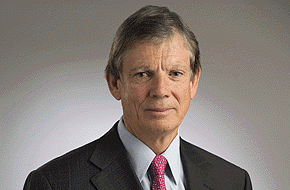
The Reserve Bank is making efforts to raise its public profile and awareness of what it does.
In a speech in Auckland yesterday, Governor Graeme Wheeler said the central bank was expanding its on-the-record speaking "by increasing the number of speeches, broadening the range of topics while remaining within the Reserve Bank’s framework, and increasing the number of speakers".
"At the same time, the Bank will continue its extensive off-the-record briefings to groups ranging in size from 15 to 400 people, but we will become more selective in the 80-100 briefings we provide each year. We are also expanding our communications through social media, in-house videos, webcasts and other online channels.
Wheeler said to be effective, monetary policy requires transparency in terms of policy goals and how these are to be achieved.
"In commenting on monetary policy decisions and especially those relating to the official cash rate, we are conscious that traders pre-position themselves prior to policy announcements and that the exchange rate and interest rate spreads can alter depending on the policy decision and the language that accompanies it.
"Above all, we want policy statements to accurately reflect the economic conjuncture and outlook as we see it, and the range of considerations we are weighing in fulfilling our responsibilities. In the case of monetary policy, these include implementing monetary policy in a sustainable, consistent, and transparent manner, having regard to the efficiency and soundness of the financial system, and seeking to avoid unnecessary instability in output, interest rates, and the exchange rate."
Wheeler said the 90-day interest rate projection contained in the bank's quarterly Monetary Policy Statements was a form of "forward guidance as to our expectations of movements in the Bank’s Official Cash Rate".
"It is intended to help businesses and households plan with greater confidence in managing their consumption patterns and saving and investment decisions, and to help shape expectations about the future path of inflation and interest rates. This also helps market participants to anticipate the Reserve Bank’s policy responses as new data becomes available.
"As with most conditional projections, the interest rate path is affected by the risks and uncertainties that usually increase with time. In practice, the balance of language around the projection is at least as important as the projection itself in shaping expectations of the outlook. When market expectations adjust smoothly and efficiently, it can diminish the need for larger policy adjustments by the central bank that could otherwise unsettle markets and have greater impacts on asset prices and spending decisions," Wheeler said.
He said that recently the central bank had introduced a Governing Committee, comprising the Governor, the two Deputy Governors and the Assistant Governor, under the chairmanship of the Governor.
"The Governing Committee will discuss all major monetary and financial policy decisions falling under the Bank’s responsibilities, including decisions on monetary policy, foreign exchange intervention, liquidity management policy, prudential policy (both micro and macro) and other regulatory policies," Wheeler said.
"To date, individual Governors have taken responsibility for particular areas of the Bank, such as operations, monetary policy and financial stability. Going forward Governors will have more individual and collective involvement in key decisions taken across all areas of the Bank."

We welcome your comments below. If you are not already registered, please register to comment
Remember we welcome robust, respectful and insightful debate. We don't welcome abusive or defamatory comments and will de-register those repeatedly making such comments. Our current comment policy is here.